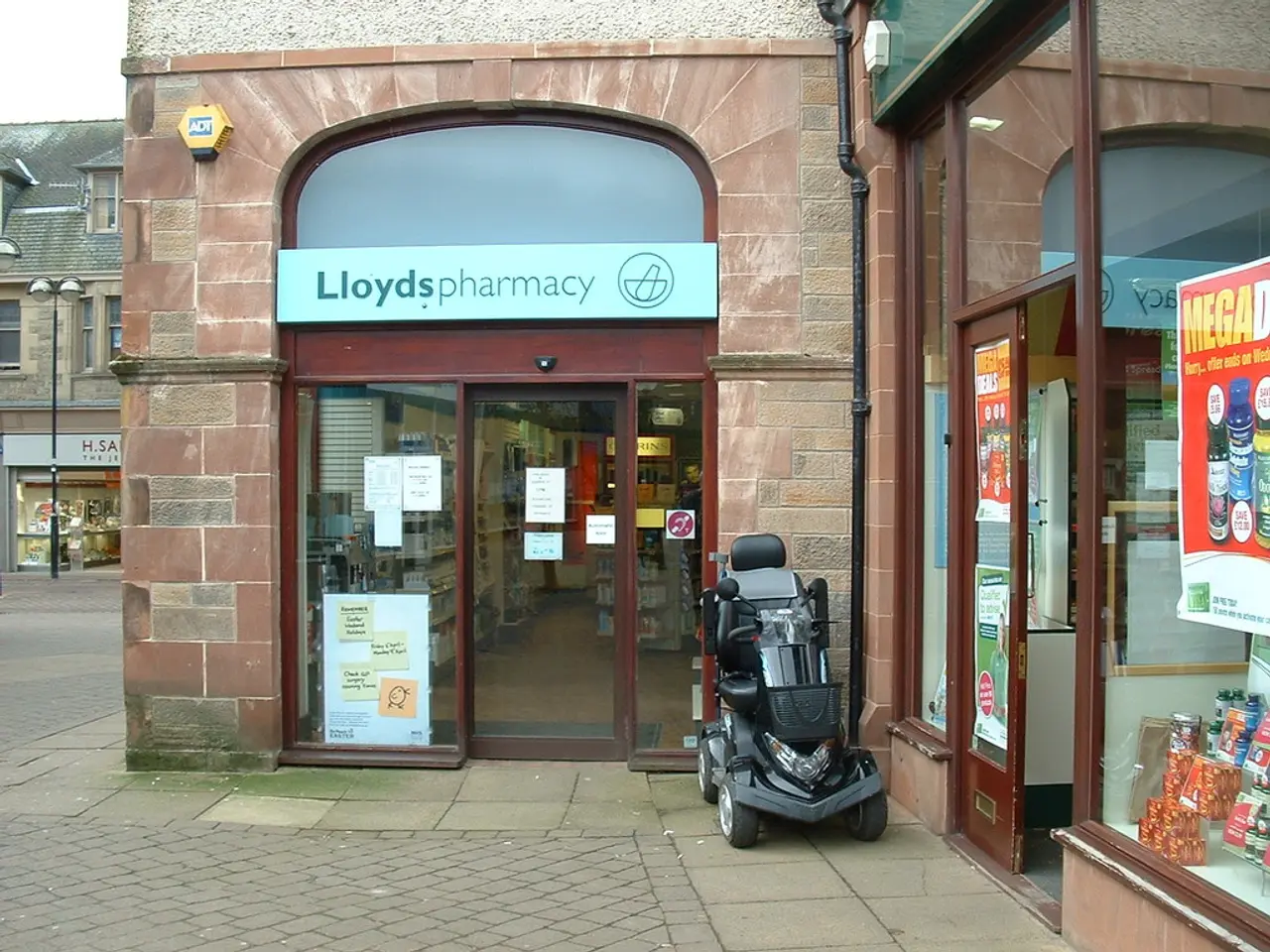Dramatic increase in pharmacy robberies - proprietor forced to deter thieves themselves
In recent times, pharmacies across England have been experiencing a significant increase in shoplifting incidents and aggressive behavior towards staff. This alarming trend has been confirmed by a survey conducted by the National Pharmacy Association (NPA), representing over 6,000 community pharmacies.
Sanjeev Panesar, a pharmacy owner in Birmingham, has firsthand experience of this issue. He reported a "noticeable rise" in shoplifting across his sites in the past 12 to 18 months. Alongside this, about 87% of the same pharmacies reported a surge in aggressive or intimidating behavior towards pharmacy staff. In the last year, 88% of 476 polled pharmacies in England reported an increase in shoplifting incidents.
The consequences of such incidents can be severe, according to Henry Gregg, NPA's chief executive. He warns of the potential serious consequences for someone's health due to the theft of strong painkillers or benzodiazepines.
While government publications emphasize medicine supply resilience and regulatory updates, direct mention of security or anti-aggression measures at pharmacies in England is limited in the recent data available.
Current measures to protect pharmacies primarily involve regulatory guidance, professional support frameworks, and some legislative backing. The General Pharmaceutical Council (GPhC) has updated guidance on pharmacy services, including standards that may indirectly support safer pharmacy practice environments. The Department of Health and Social Care (DHSC) coordinates with devolved governments for medicine supply resilience, which helps pharmacies maintain stock and reduces stress on staff who otherwise may face confrontations arising from shortages.
The Royal Pharmaceutical Society (RPS) provides toolkits supporting pharmacy staff with NHS procedures and incident reporting, which may help staff cope after aggressive incidents. New programs such as the £85 million UK-wide initiative increasing pharmacy-led weight management consultations aim to improve patient interaction and service quality, which could indirectly reduce tensions by shifting pharmacy roles towards more integrated care.
However, there is a need for more focused measures on physical protection, staff training, legal deterrents, and cross-sector collaboration. Enhanced security measures such as improved physical security (CCTV, alarm systems), staff training in conflict de-escalation, and clear protocols for managing aggressive behavior are essential.
Stronger legal frameworks to deter and penalize shoplifting and violence against pharmacy staff would provide more deterrence and protection. Additional funding to allow pharmacies to implement security measures and training without compromising service levels is also necessary.
Closer ties between pharmacies and local police to respond rapidly to incidents and share intelligence about repeat offenders could also be beneficial. Since some aggressive behaviors stem from underlying social or health issues, integrated approaches involving mental health services and social care could reduce incidents.
Mr. Gregg suggests the need to do more to tackle shoplifting and offer pharmacies similar support to other NHS colleagues in primary care. Mr. Panesar, who has faced verbal abuse and physical intimidation, agrees, stating that facing hostility at work has a lasting effect on job satisfaction, morale, and feelings of safety for pharmacy staff.
In a bid to combat this issue, Mr. Panesar has taken measures such as hiring security guards and chasing offenders off himself. Despite these efforts, he urges for more comprehensive support from the government and law enforcement agencies to ensure the safety and wellbeing of pharmacy staff and the public.
- Despite the surge in shoplifting and violent behavior towards pharmacy staff, the government focus seems limited to medicine supply resilience and regulatory updates, with little attention given to security or anti-aggression measures.
- Sanjeev Panesar, a pharmacy owner, emphasizes the urgent need for enhanced security measures, stronger legal frameworks, staff training, and cross-sector collaboration to protect not only pharmacies but also the well-being of their staff and the public.




